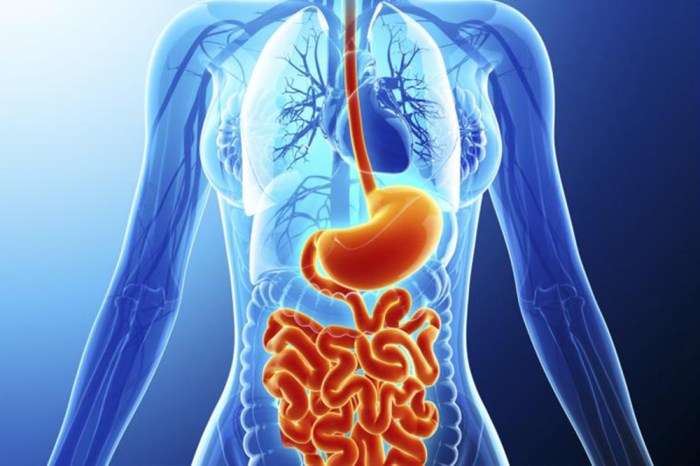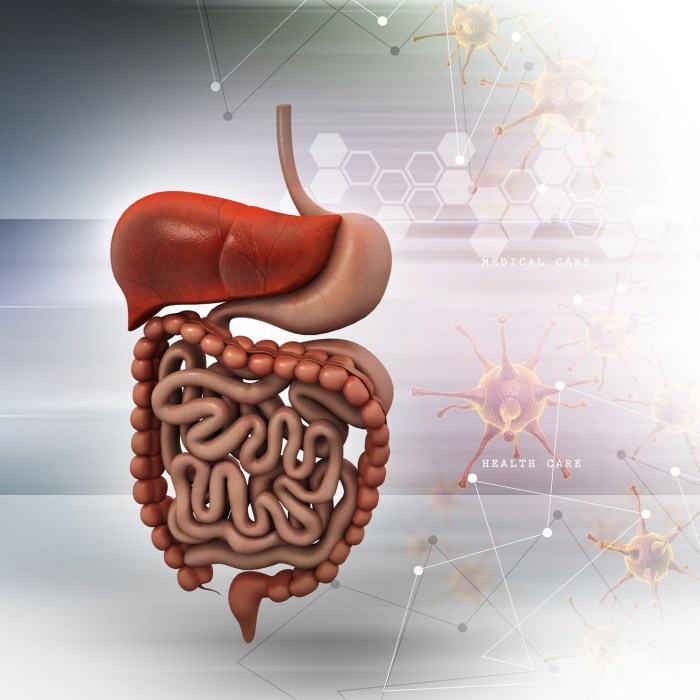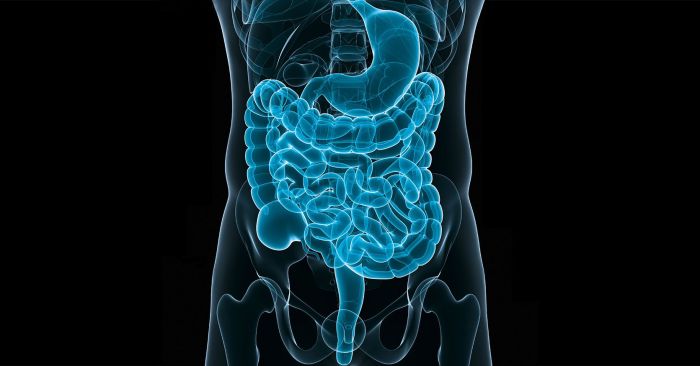For the term gastroenterology which definition is accurate below – For the term gastroenterology, which definition is accurate below? Gastroenterology, a specialized branch of medicine, encompasses the study, diagnosis, and treatment of diseases affecting the digestive system. This field of expertise delves into the intricate workings of the esophagus, stomach, small and large intestines, pancreas, liver, and biliary system, providing a comprehensive understanding of their functions and dysfunctions.
As we delve deeper into the realm of gastroenterology, we will unravel the complexities of this medical specialty, exploring its subspecialties, prevalent gastrointestinal disorders, diagnostic procedures, treatment options, and groundbreaking advancements that are revolutionizing patient care.
Definition of Gastroenterology

Gastroenterology is a branch of medicine that focuses on the digestive system and its disorders. It encompasses the study, diagnosis, and treatment of conditions affecting the esophagus, stomach, small intestine, large intestine, pancreas, liver, and biliary system.
The scope of gastroenterology includes a wide range of conditions, including inflammatory bowel disease, gastroesophageal reflux disease, peptic ulcer disease, irritable bowel syndrome, and liver diseases. Gastroenterologists are also involved in the diagnosis and management of gastrointestinal cancers.
Subspecialties within Gastroenterology
- Hepatology: Focuses on the liver, gallbladder, and biliary system, including conditions such as cirrhosis, hepatitis, and liver cancer.
- Pancreatology: Deals with diseases of the pancreas, such as pancreatitis, pancreatic cancer, and cystic fibrosis.
- Inflammatory Bowel Disease (IBD): Specializes in the diagnosis and management of IBD, including Crohn’s disease and ulcerative colitis.
- Endoscopy: Involves the use of specialized instruments to visualize and treat disorders of the digestive tract, including colonoscopy, gastroscopy, and endoscopic retrograde cholangiopancreatography (ERCP).
- Motility Disorders: Focuses on conditions affecting the movement of the digestive tract, such as gastroparesis and irritable bowel syndrome.
Common Gastrointestinal Disorders

| Disorder | Symptoms | Diagnosis | Treatment Options |
|---|---|---|---|
| Irritable Bowel Syndrome (IBS) | Abdominal pain, bloating, diarrhea, constipation | Medical history, physical exam, blood tests | Dietary modifications, medications, therapy |
| Inflammatory Bowel Disease (IBD) | Abdominal pain, diarrhea, weight loss, fatigue | Colonoscopy, biopsies, blood tests | Medications, surgery, lifestyle changes |
| Gastroesophageal Reflux Disease (GERD) | Heartburn, regurgitation, difficulty swallowing | Endoscopy, pH monitoring | Medications, lifestyle changes, surgery |
| Peptic Ulcer Disease | Abdominal pain, heartburn, nausea | Endoscopy, biopsies | Medications, antibiotics, surgery |
Diagnostic Procedures in Gastroenterology
- Endoscopy: A procedure that involves inserting a thin, flexible tube with a camera into the digestive tract to visualize and diagnose abnormalities.
- Colonoscopy: A type of endoscopy used to examine the large intestine and rectum for polyps, cancer, and other abnormalities.
- Capsule Endoscopy: A procedure that involves swallowing a capsule containing a camera to capture images of the small intestine.
- Ultrasound: A non-invasive imaging technique that uses sound waves to create images of the digestive organs.
- Magnetic Resonance Imaging (MRI): A non-invasive imaging technique that uses magnetic fields and radio waves to create detailed images of the digestive organs.
Treatment Options in Gastroenterology: For The Term Gastroenterology Which Definition Is Accurate Below

- Medications: A wide range of medications are used to treat gastrointestinal disorders, including antibiotics, anti-inflammatory drugs, and proton pump inhibitors.
- Therapies: Non-drug treatments such as dietary modifications, lifestyle changes, and stress management can help manage gastrointestinal symptoms.
- Surgery: Surgical interventions may be necessary to treat certain gastrointestinal disorders, such as bowel resection for IBD or gallbladder removal for cholecystitis.
Advancements in Gastroenterology
- Robotics: Robotic-assisted surgery is becoming more common in gastroenterology, allowing for more precise and less invasive procedures.
- Artificial Intelligence (AI): AI is being used to develop diagnostic tools that can help identify gastrointestinal disorders at an early stage.
- Personalized Medicine: Advances in genetics are leading to the development of personalized treatments for gastrointestinal disorders based on individual genetic profiles.
FAQ Guide
What is the primary focus of gastroenterology?
Gastroenterology centers on the study, diagnosis, and treatment of diseases affecting the digestive system, including the esophagus, stomach, intestines, pancreas, liver, and biliary system.
What are some common gastrointestinal disorders?
Irritable bowel syndrome, inflammatory bowel disease, gastroesophageal reflux disease, peptic ulcer disease, and celiac disease are among the prevalent gastrointestinal disorders.
How are gastrointestinal disorders diagnosed?
Diagnosis involves a combination of patient history, physical examination, laboratory tests, imaging techniques (such as endoscopy, colonoscopy, and capsule endoscopy), and biopsy when necessary.